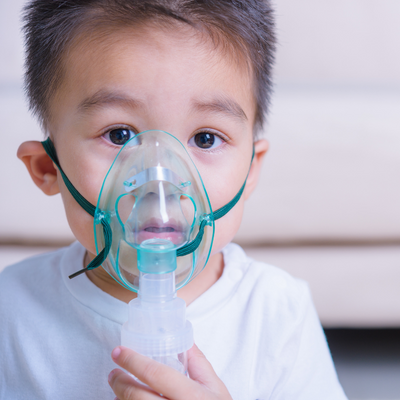As we headed into the new year, viruses were on the rise — from coronavirus to respiratory syncytial virus, or RSV, a virus that can overwhelmingly impact children. We reached out to Sindhu Mohandas, M.D., infectious diseases specialist at Children’s Hospital Los Angeles, to learn more about the virus and what we can do to protect our families.
What are the symptoms of RSV?
Symptoms of RSV can differ with the age of your child. The most common symptoms include a runny nose, cough, sneezing, decreased appetite and fever. Wheezing and breathing difficulties can also occur in young children.
In very young infants, RSV may present with irritability, decreased activity or breathing difficulties, including apnea (pauses in breathing over 10 seconds), without any of the other cold symptoms.
Are kids of a certain age more at risk? Other risk factors?
Younger children are more at risk for severe symptoms that can require hospitalization. Children younger than 6 months are most likely to have severe illness. Children at particularly high risk for severe RSV-related diseases include premature infants and children younger than 2 years of age with diseases that affect the heart, lungs or immune system.
To prevent serious disease, at-risk infants can be given a monthly injection of a medication consisting of RSV antibodies during the RSV season.
How can we tell the difference between RSV, a cold, the flu and COVID-19?
RSV, cold due to other viruses, flu and COVID are all caused by respiratory viruses and, therefore, there is significant overlap in symptoms, and they can be difficult to tell apart based on the symptoms alone. Some differences do exist, with some symptoms being more common in one than the other. For example, fever is less common in RSV and more common with flu. Wheezing and breathing difficulties are more common with RSV. Loss of taste and smell is unique to COVID. However, testing is the only definitive way to tell these conditions apart.
What are early signs of RSV?
RSV tends to start with a mild cold; however, it can become more severe in a few days (usually 3-4 days after symptoms start). Watch for worsening [conditions], including wheezing and breathing difficulties and seek medical care if they develop. Fever may not always occur with RSV.
Very young infants may not start out with symptoms of a cold, and their only symptoms may be decreased activity or appetite, irritability and apnea.
When should parents call their doctor?
If a child is wheezing, struggling to breathe or not drinking enough fluids, then parents should call the doctor. Be especially vigilant for very young infants if other children in the family have RSV since [babies] can present with more unusual symptoms, such as apnea.
What is the best way to protect our kids?
RSV is highly contagious and is spread through droplets when someone coughs or sneezes. It can live for a few hours on surfaces and on hands. Best way to protect kids is by taking steps to prevent the infection. This can be done by frequent hand washing, keeping hands off your face, avoiding close contact with sick people and cleaning and disinfecting surfaces that people frequently touch, including toys, play surfaces, doorknobs, etc.
What is the most important thing parents should know about RSV?
RSV infections occur every year, but it is particularly worse this year [late 2022]. People of any age can get RSV, but it is more serious in younger children. Be aware of the symptoms of RSV in young children and call your doctor if your child is not improving or is showing signs of worsening.
What health & wellness questions are keeping you up at night? Send your questions to elena.epstein@laparent.comand we’ll ask the experts.

























